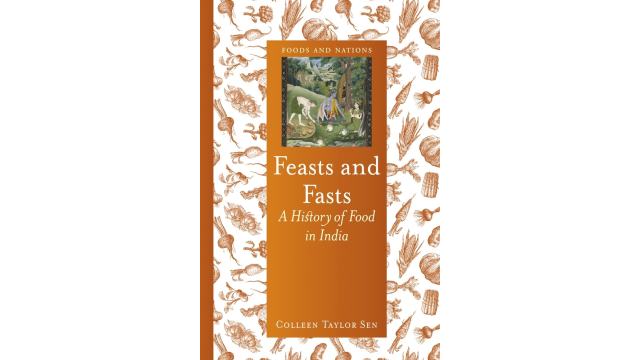Healthy Fasting

“Fasting is a superpower. And it’s free.” These famous words on fasting by author Jeanette Winterson merit some consideration. Fasting, as a practice, has been observed throughout history for hundreds of years. As hunter-gatherers, humans would involuntarily fast. Fast-forward to present times, and fasting, especially intermittent fasting, has gained interest, due to its potential health benefits. According to Harvard Health Publishing, “fasting is evolutionarily embedded within our physiology, triggering several essential cellular functions” that promote longevity and wellness. From weight management to improved metabolic health, fasting has shown promising results.
Note: Intermittent fasting is not recommended for those in periods of rapid growth, such as children and adolescents.
The History of Fasting
Fasting involves intentionally refraining from food or drink to cleanse, reflect, or renew body and mind. It has roots in many ancient traditions and religious practices. In many such practices, the benefits of fasting extend to wholistic goals that include various aspects of wellbeing.
Fasting was followed as a means of self-discipline, spiritual and mental purification, and detoxification. Medical fasting was also prescribed as a form of treatment to galvanize the body’s ability to heal itself. Ancient Greek physicians were known to prescribe fasting for many ailments.
According to Colleen Taylor Sen, food historian and author of Feasts and Fasts: A History of Food in India, “fasting can take different forms ranging from total abstention from food to eating only certain dishes or only at certain times.”
Different Types of Fasting
Intermittent Fasting
John Hopkins Medicine defines intermittent fasting as “an eating plan that switches between fasting and eating on a regular schedule.” Intermittent fasting (IF) focuses on time-restricted eating. The 16/8 method is the most popular, allowing for eating during an 8- to 10-hour window, predominantly in the daytime, to chime with the circadian rhythm. Eating choices during this interval must be healthy and balanced, including whole foods, fruits, vegetables, and lentils and avoiding processed foods and trans fats. Peer-reviewed studies have shown that IF helps stimulate metabolism, achieve blood sugar balance, reduce inflammation, and manage weight. It is also a more manageable form of fasting for beginners. Studies and research do not recommend IF for children and adolescents.
Extended Fasting
Extended fasting (EF) refers to fasts lasting more than 72 hours. Unlike dieting, where smaller amounts of food and specific foods are included, EF, or prolonged fasting, entails abstaining from food and allows only hydration with water and, in some cases, coffee or tea. While studies indicate that the benefits of EF can be significant, it is best to try extended fasting under medical supervision as it requires monitoring to ensure nutritional needs are met.
Mariam Begg’s Vitamin Water offers hydration while fasting.
Benefits of Fasting
Fasting can have a host of benefits, including:
Heart health. Fasting has been linked to improvements in various parameters of cardiovascular health, including reduced blood pressure and lowered resting heart rate. It can help lower cholesterol levels and relieve inflammation, contributing to a healthier heart.
Weight management. Certain studies have shown that intermittent fasting could help in weight loss management. When the body is in a fasting state, it starts burning fat for energy through the process of ketosis, leading to targeted weight loss. In addition, fasting may help regulate hormones like insulin, further contributing to better weight management.
Improved metabolic health. Fasting has been linked to improved insulin sensitivity and reduced inflammation. Both factors are crucial in maintaining metabolic health. By giving the digestive system a break, fasting may help the body reset and function more efficiently.
Cellular repair and longevity. Fasting initiates a process called autophagy in which cells remove damaged components. This cellular repair is linked to a reduced risk of chronic diseases. "Additionally, fasting helps activate certain longevity genes that promote wellbeing," says nutritionist Nadia Mahmud.
Enhanced brain function. Fasting helps in reducing inflammation that impacts the brain. Fasting can also promote the production of brain-derived neurotrophic factor (BDNF), a protein associated with cognitive function and mood regulation.
How to Know If It Will Work for You?
Fasting is not suitable for everyone, and individual needs vary. Consultation with a healthcare professional is recommended, especially for those with health conditions, pregnant individuals, or those on certain medications. While fasting offers various health benefits, it is essential to be aware of potential side effects, including:
Nutrient deficiency. Extended fasting without proper nutritional support can lead to nutrient deficiencies. It is important to ensure that fasting periods are followed by well-balanced, nutrient-dense meals.
Reduced energy levels and fatigue. Some individuals may experience fatigue, weakness, or low energy levels during fasting. This is often a temporary side effect as the body adjusts to the change in its energy source from carbohydrates to fat.
Nutrition Support While Fasting
Hydration. Staying hydrated is crucial during fasting. Adequate hydration supports various bodily functions. Water, herbal and green teas, and black coffee are generally recommended.
Electrolytes. Including electrolytes, such as sodium, potassium, and magnesium, is essential to maintain proper bodily functions during fasting. Drinking unsweetened electrolyte supplements or consuming foods that are rich in these minerals (such as nuts and seeds) during your eating window can make your fast easier.
Protein-rich meals. When you break a fast, incorporating protein-rich meals helps support muscle maintenance and repair. Eggs, legumes, and dairy are excellent choices. Other foods to include when breaking your fast: avocados, blueberries, chia seeds, pumpkin seeds, eggs, kefir, and chickpeas.
Rakesh Raghunathan breaks a fast with a nombu kanji.
Whatever the kind of fasting method you opt for, fasting can foster a deeper connection between mind and body and promote mindfulness and self-awareness, in addition to tangible health benefits. It’s important to think about fasting as a vacation for yourself that lets your body and brain heal and recover from all the stressors in your life.
Key Takeaways
- Explore fasting types and their effects.
- Discover effective intermittent fasting.
- Discover healthy fasting methods.








